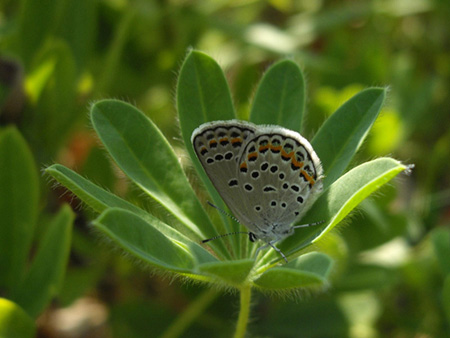Government Grants
Business Grants
Home Owner Programs
Federal Programs
About Us
Wildlife Without Borders - Africa
Please note:
You must read the application instructions at the program website.
Your application must meet the requirements in that document or you will not be considered for funding The Wildlife Without Borders-Africa Program funds projects designed to strengthen the ability of African institutions to manage and conserve species, habitats, and ecological process for the benefit of the people of Africa and the world.
Of particular interest are projects that build the human and institutional capacity to effectively conserve and manage natural protected areas in Africa.
Of particular interest are projects that provide training to:
1. Increase human and institutional capacity to mitigate the impact of extractive industries, climate change, human / wildlife conflict, illegal trade in bushmeat, and/or wildlife disease in and around protected areas; 2. Strengthen human and institutional capacity to manage protected areas by focusing on:
human resource management, financial management, vehicle and facility maintenance, grant writing and project implementation, community outreach and education, conflict resolution, and coalition building; 3. Increase the capacity of universities, colleges or other institutions to deliver training programs on protected area management; 4. Strengthen decision makers’ knowledge of concepts relevant to protected area design, legislation, policy and finance, and the importance of harmonizing these with other national sectoral policies.
5. Assess the capacity of protected areas and/or institutions responsible for their management.
Training must focus either on protected areas in general or on a specific protected area.
For the purposes of this fund, protected areas are defined as sites which are publicly or privately owned with recognized legal status accorded by national, provincial, or local government, containing primarily unmodified natural systems managed for long-term protection.
Examples include:
national parks, forest reserves, buffer zones, community reserves, and privately held land conservancies.
The priority audiences for the training include:
• protected area managers and administrators • protected area guards and rangers • protected area outreach and education specialists • individuals living in and around protected areas who have a significant impact on resource use • conservation educators, including professors, teachers, and trainers • decision makers, including public officials, legislators and activists Projects should take place in Africa.
If work is to be conducted outside Africa, the proposal must explain how the proposed activities will further protected area conservation and management within Africa to be eligible for funding.
You must read the application instructions at the program website.
Your application must meet the requirements in that document or you will not be considered for funding The Wildlife Without Borders-Africa Program funds projects designed to strengthen the ability of African institutions to manage and conserve species, habitats, and ecological process for the benefit of the people of Africa and the world.
Of particular interest are projects that build the human and institutional capacity to effectively conserve and manage natural protected areas in Africa.
Of particular interest are projects that provide training to:
1. Increase human and institutional capacity to mitigate the impact of extractive industries, climate change, human / wildlife conflict, illegal trade in bushmeat, and/or wildlife disease in and around protected areas; 2. Strengthen human and institutional capacity to manage protected areas by focusing on:
human resource management, financial management, vehicle and facility maintenance, grant writing and project implementation, community outreach and education, conflict resolution, and coalition building; 3. Increase the capacity of universities, colleges or other institutions to deliver training programs on protected area management; 4. Strengthen decision makers’ knowledge of concepts relevant to protected area design, legislation, policy and finance, and the importance of harmonizing these with other national sectoral policies.
5. Assess the capacity of protected areas and/or institutions responsible for their management.
Training must focus either on protected areas in general or on a specific protected area.
For the purposes of this fund, protected areas are defined as sites which are publicly or privately owned with recognized legal status accorded by national, provincial, or local government, containing primarily unmodified natural systems managed for long-term protection.
Examples include:
national parks, forest reserves, buffer zones, community reserves, and privately held land conservancies.
The priority audiences for the training include:
• protected area managers and administrators • protected area guards and rangers • protected area outreach and education specialists • individuals living in and around protected areas who have a significant impact on resource use • conservation educators, including professors, teachers, and trainers • decision makers, including public officials, legislators and activists Projects should take place in Africa.
If work is to be conducted outside Africa, the proposal must explain how the proposed activities will further protected area conservation and management within Africa to be eligible for funding.
Obtain Full Opportunity Text:
Wildlife Without Borders Application Instructions
Additional Information of Eligibility:
Applicants under this program can be: federal, state and local government agencies; non-profit, non-governmental organizations; and public and private institutions of higher education.
U. S. non-profit, non-governmental organizations must submit documentary evidence of their Section 501(c)(3) non-profit status.
Full Opportunity Web Address:
Contact:
Agency Email Description:
Agency Email:
wwb_africa@fws.gov
Date Posted:
2009-01-26
Application Due Date:
2009-01-30
Archive Date:
2009-03-01
Social Entrepreneurship
Spotlight
Social Enterprise Piles Textbooks for Change

Textbooks for Change, a London-based social enterprise that has obtained the B Corporation seal for positive social and environmental impact, is seeking investors that would be helping the company expand.

